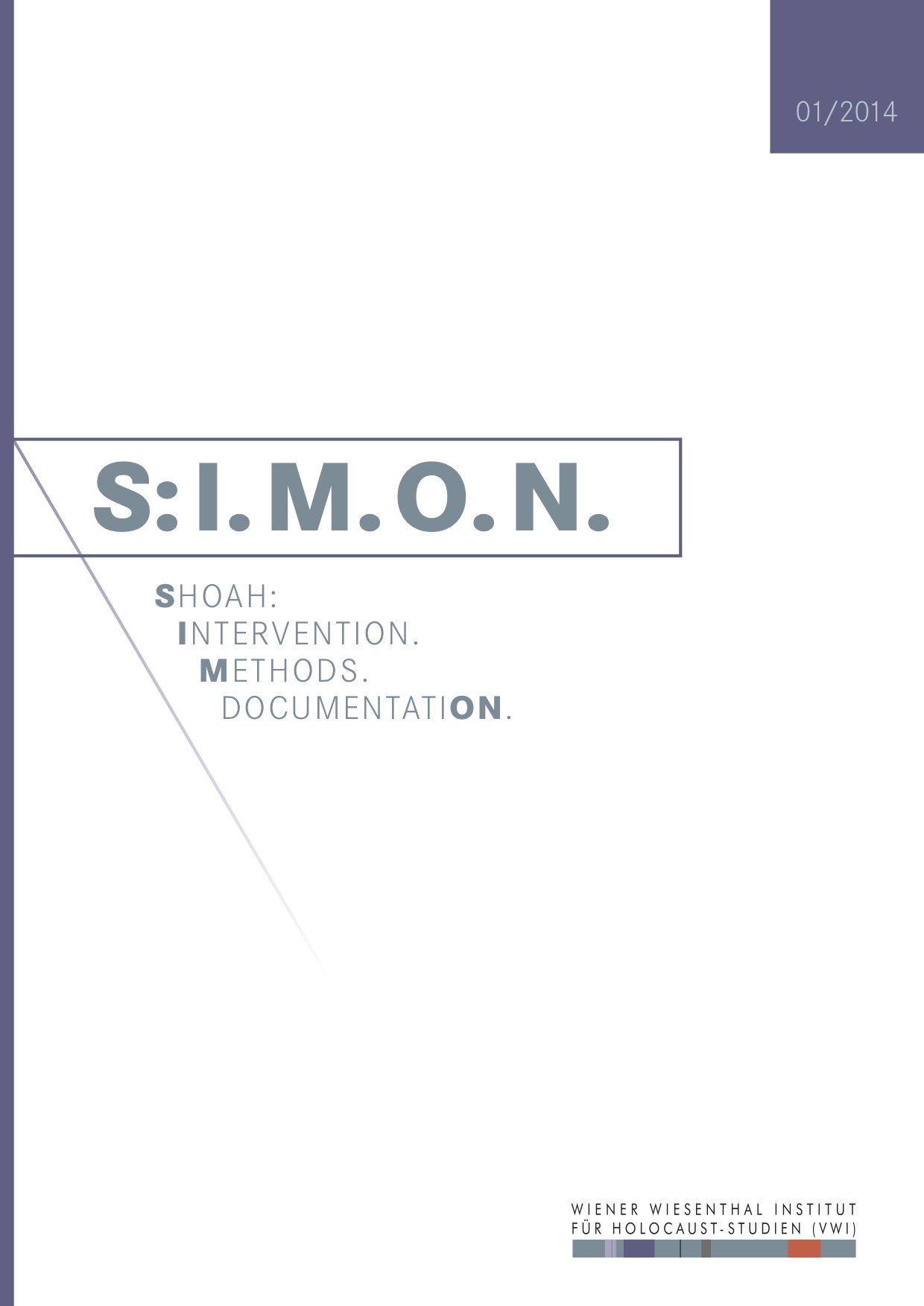„A Naye Yidishe Heym in Nidershlezye“ - Polnische Shoah-Überlebende in Wrocław (1945–1949). Eine Fallstudie
''„A Naye Yidishe Heym in Nidershlezye“ - Polish Shoah Survivors in Wrocław (1945–1949). A Case Study
Author(s): Katharina FriedlaContributor(s): Jana Starek (Editor)
Subject(s): Jewish studies, Recent History (1900 till today), WW II and following years (1940 - 1949), Fascism, Nazism and WW II, History of the Holocaust, History of Antisemitism
Published by: Wiener Wiesenthal Institut für Holocaust-Studien
Keywords: Poland; Shoah; holocaust; Jews; WWII; survivors; Wrocław;
Summary/Abstract: Heavy fighting around ‚fortress Breslau’ resulted in the German surrender on May 6, 1945 and almost completely destroyed the city. The following three years saw the ‚relocation’ of the city’s entire German population to the West. It was the beginning of the city’s great transfer period, which inevitably caused the losses of homes and identity crises: it included the ‚resettlement‘ of the German inhabitants, the settlement of Poles, the forced resettlement of the Ukrainian population, the expulsion of the returned members of the German-Jewish community as well as the directed settlement of Polish Shoah survivors. Breslau became Wrocław: the city was rid of German traces, utterly Polonized and, together with the entire area of Lower Silesia, celebrated as a „recovered territory“. The Polish settlers who surged into the city immediately after the end of the war, including Polish Jewish survivors, were supposed to find a new home there. This proved to be too great a challenge under the circumstances of the immediate post-war era: Wrocław was immersed in chaos and destruction, the presence of its German inhabitants was still apparent throughout the city (at least until 1948), the reorganization of the Polish state structures as well as the political consolidation of power was only just underway. Moreover, other factors also contributed to the demolition of initial prospects that Jewish life would be established in post-war Poland. This contribution aimed to analyse and illuminate these factors at hand of the example of Wrocław.
Journal: S:I.M.O.N. Shoah: Intervention. Methods. Documentation.
- Issue Year: 1/2014
- Issue No: 1
- Page Range: 32-42
- Page Count: 11
- Language: German

